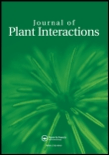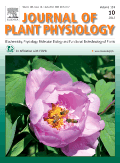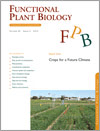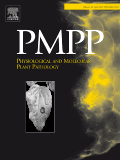
Plant Stress
Scope & Guideline
Decoding Plant Stress Responses for a Greener Tomorrow
Introduction
Aims and Scopes
- Abiotic Stress Responses:
Research on how plants react to environmental stressors such as drought, salinity, heat, and cold. This includes physiological, biochemical, and molecular mechanisms that enable plants to cope with these conditions. - Biotic Stress Management:
Studies aimed at understanding plant responses to pathogens, pests, and diseases. This encompasses mechanisms of resistance and tolerance, as well as the development of biocontrol strategies. - Role of Phytohormones:
Investigations into how plant hormones such as abscisic acid, salicylic acid, and jasmonic acid influence stress responses and overall plant health. - Nanotechnology and Biostimulants:
Exploration of nanoparticles and biostimulants as innovative tools for enhancing plant stress resilience and promoting growth under adverse conditions. - Genomic and Transcriptomic Approaches:
Utilization of genomic, transcriptomic, and proteomic techniques to unravel the complex regulatory networks involved in plant stress responses. - Sustainable Agriculture Practices:
Research focused on developing sustainable agricultural practices that enhance crop resilience to climate change and improve food security.
Trending and Emerging
- Multi-Omics Approaches:
An increasing number of studies are employing multi-omics strategies (genomics, transcriptomics, proteomics) to provide comprehensive insights into plant stress responses and resiliency mechanisms. - Climate Change Adaptation Strategies:
Research focused on understanding how plants can adapt to climate change stresses, including heat and drought, is becoming a significant theme as global temperatures rise. - Microbial Interactions and PGPR:
There is a growing interest in the role of beneficial microbes, such as plant growth-promoting rhizobacteria (PGPR), in enhancing plant resilience to stress. - Use of Biostimulants and Nanotechnology:
Emerging studies are increasingly exploring the application of biostimulants and nanomaterials to mitigate stress effects and improve nutrient uptake. - Integrated Pest and Stress Management:
Research is trending toward integrated approaches that combine pest management with abiotic stress mitigation, recognizing the interconnectedness of these challenges. - Plant Secondary Metabolites:
The exploration of plant secondary metabolites and their roles in stress tolerance is gaining momentum, particularly in the context of enhancing crop resilience.
Declining or Waning
- Conventional Breeding Techniques:
Research utilizing traditional breeding methods for stress tolerance is becoming less common, as modern genetic engineering and biotechnological methods gain favor for their efficiency and precision. - Basic Physiological Studies:
There is a noticeable reduction in studies focusing solely on basic physiological responses to stress, as more complex multi-omics approaches gain traction. - Single Stress Focus:
The trend is moving away from studies that examine only one type of stress (e.g., drought or salinity) in isolation, as researchers increasingly recognize the need to study multiple stress interactions. - Static Laboratory Conditions:
Research conducted under highly controlled laboratory conditions is declining as field-based studies that reflect real-world complexities become more prioritized.
Similar Journals

Journal of Plant Interactions
Connecting Research and Insights in Plant ScienceThe Journal of Plant Interactions, published by Taylor & Francis Ltd in the United Kingdom, serves as a leading open-access platform dedicated to advancing the understanding of plant interactions and their ecological implications. Established in 2005 and transitioning to open access in 2015, this journal focuses on both fundamental and applied aspects of plant interactions, providing invaluable insights for researchers, professionals, and students within the fields of Ecology and Plant Science. With a commendable impact factor and ranked in the second quartile (Q2) for both Ecology, Evolution, Behavior and Systematics and Plant Science, it reflects the quality and relevance of its published research. Researchers aiming to publish innovative studies on plant behavior and ecosystem dynamics will find a welcoming avenue for their work, as the journal is dedicated to fostering open dialogue and sharing knowledge across disciplines.

Plants-Basel
Championing open access for vital ecological insights.Plants-Basel is a distinguished open access journal published by MDPI since 2012, offering a comprehensive platform for researchers and professionals in the field of ecology, plant science, and evolutionary biology. Based in Switzerland, this journal has established itself as a leader in disseminating high-quality research, evident through its impressive rankings in multiple categories, including Q1 in Ecology and Plant Science for 2023. With a substantial impact factor and a dedicated focus on advancing our understanding of plant interactions, ecosystems, and sustainable practices, Plants-Basel is vital for scholars seeking to contribute to these critical fields. The journal's commitment to open access enhances visibility and accessibility, facilitating the widespread sharing of knowledge essential for addressing contemporary ecological challenges.

JOURNAL OF PLANT PHYSIOLOGY
Exploring the Dynamics of Plant LifeJOURNAL OF PLANT PHYSIOLOGY, published by ELSEVIER GMBH, stands as a leading international journal dedicated to the field of plant physiology, agronomy, and crop science. With an impressive impact factor and recognition within the Q1 and Q2 quartiles across various categories, this journal consistently ranks among the top in its field—positioned at #65/516 in Plant Science and #52/406 in Agronomy and Crop Science as of 2023. Located in Munich, Germany, it serves as a vital platform for researchers, practitioners, and students to share groundbreaking insights and advancements. Although it does not currently offer open access, the journal provides an essential repository of knowledge, publishing significant original research, reviews, and discussions on plant function, regulation, and development, thereby shaping the future of agricultural practices and contributing to our understanding of biophysical processes. Researchers looking to publish in a reputable venue or to access cutting-edge studies will find JOURNAL OF PLANT PHYSIOLOGY an invaluable resource.

FUNCTIONAL PLANT BIOLOGY
Connecting Genetics and Ecology for Plant ProgressFUNCTIONAL PLANT BIOLOGY is a prestigious academic journal published by CSIRO PUBLISHING, specializing in the dynamic fields of Agronomy and Crop Science as well as Plant Science. With an ISSN of 1445-4408 and an E-ISSN of 1445-4416, this journal provides a platform for innovative research that addresses key challenges in plant functional biology, ranging from genetics and physiology to ecological interactions. As evidenced by its impact factor and competitive rankings, including Q1 in Agronomy and Crop Science and Q2 in Plant Science, FUNCTIONAL PLANT BIOLOGY holds a significant place in the scientific community, ranking in the top tiers of Scopus for both categories. The journal supports open access options, ensuring that critical research is widely disseminated and accessible to researchers, professionals, and students around the globe. With a publication history spanning from 2002 to 2024, the journal continues to foster the advancement of plant science, making significant contributions to sustainable agricultural practices and ecological research in Australia and beyond.

Czech Journal of Genetics and Plant Breeding
Advancing genetic innovation for a sustainable future.Czech Journal of Genetics and Plant Breeding is a premier academic journal dedicated to advancing the fields of genetics and plant science. Published by the esteemed Czech Academy Agricultural Sciences, this journal has been available as an Open Access resource since 2002, ensuring that essential research is freely accessible to a global audience. With an ISSN of 1212-1975 and an E-ISSN of 1805-9325, it continues to disseminate high-quality studies and findings from the vibrant scientific community in the Czech Republic and beyond. The journal operates within the Scopus ranks, securing 279th place in the category of Plant Science and 282nd in Genetics, reflecting its commitment to scholarly rigor. The Journal's objectives focus on exploring innovations in genetic research and plant breeding methodologies, offering valuable insights that foster collaboration among researchers, professionals, and students alike. As the journal converges from 2007 to 2024, it remains a vital publication for those seeking to stay abreast of developments in genetic diversity, crop improvement, and sustainable agriculture practices.

PHYSIOLOGICAL AND MOLECULAR PLANT PATHOLOGY
Exploring the intersection of physiology and molecular biology in plant pathology.Physiological and Molecular Plant Pathology is a leading journal published by Academic Press Ltd - Elsevier Science Ltd, dedicated to advancing our understanding of plant diseases through the synthesis of physiological and molecular perspectives. With an ISSN of 0885-5765, this esteemed journal has been a cornerstone in the field since its inception in 1986 and continues to publish critical research findings up to 2024. Notably, it holds a strong reputation in Plant Science, ranked Q2, and genetics, ranked Q3, reflecting its impactful contributions to these important areas of study. The journal is recognized within Scopus, achieving a ranking of 151 out of 516 in Plant Science, positioning it within the 70th percentile, making it a vital resource for researchers and students alike. While it is not an open-access journal, the insights provided in each issue are invaluable for those dedicated to understanding the complexities of plant pathology and enhancing agricultural resilience. Researchers, professionals, and students in the field are encouraged to explore and contribute to this pivotal journal, which plays a crucial role in driving innovation and discovery in plant health sciences.

Journal of Integrative Plant Biology
Exploring the Synergy of Plant BiologyThe Journal of Integrative Plant Biology, published by WILEY, is a premier academic journal that has been at the forefront of advancing research in plant biology since its inception in 2005. With a notable impact factor and a robust Scopus ranking—positioned at #7 out of 516 in Plant Science and #18 out of 438 in Biochemistry—this journal is recognized as a Q1 journal in multiple categories, including Biochemistry and Plant Science. The journal aims to bridge the gaps between various disciplines in plant research, emphasizing integrative and interdisciplinary approaches to understanding plant biology. With options for open access, the Journal of Integrative Plant Biology ensures broad visibility and impact of research findings, making it an invaluable resource for researchers, professionals, and students looking to stay informed on innovative advancements in the field. Its headquarters are located in the United Kingdom, further amplifying its reach within the global academic community.

ACTA PHYSIOLOGIAE PLANTARUM
Driving advancements in agricultural productivity and research.ACTA PHYSIOLOGIAE PLANTARUM, published by Springer Heidelberg, is a leading journal dedicated to advancing the fields of Agronomy, Plant Science, and Physiology. With an ISSN of 0137-5881 and an E-ISSN of 1861-1664, this esteemed publication has a significant global outreach, being based in Germany. The journal is recognized for its impactful contributions, currently holding a Q2 ranking in both Agronomy and Crop Science, as well as Plant Science, and a Q3 ranking in Physiology according to 2023 category quartiles. Its Scopus rankings reflect its reputable standing within the academic community, with notable placements in Agricultural and Biological Sciences, further highlighting its importance for researchers and professionals in the field. The objective of ACTA PHYSIOLOGIAE PLANTARUM is to foster robust discussions and disseminate innovative studies that enhance our understanding of plant physiology and its applications. Though not an open-access journal, it provides comprehensive access options for readers keen on exploring cutting-edge research that drives advancements in agricultural productivity and sustainability. Through its dedication to excellence, this journal continues to be a vital resource for advancing knowledge and practices in plant sciences.

Molecular Horticulture
Advancing the Future of Crop Science and Molecular BiologyMolecular Horticulture is a prestigious journal published by SpringerNature, dedicated to advancing knowledge in the fields of Agronomy, Crop Science, Horticulture, and Molecular Biology. Based in the United Kingdom, this journal, with ISSN 2730-9401, is recognized for its high-quality, peer-reviewed research and has rapidly established itself within the academic community, achieving a remarkable Q1 ranking across its relevant categories as of 2023. With a strong focus on innovative research that explores the intersection of molecular biology and horticultural science, Molecular Horticulture provides valuable insights that are essential for researchers and professionals aiming to enhance crop production and sustainability practices. As part of the Scopus database, the journal ranks impressively within its fields, holding notable positions such as Rank #7 in Horticulture and Rank #42 in Agronomy and Crop Science. While currently published through traditional access models, the journal remains accessible to a wide audience of scientists, educators, and students eager to stay informed on the latest discoveries and trends in plant science.

JOURNAL OF PLANT BIOLOGY
Cultivating Knowledge for Sustainable SolutionsJOURNAL OF PLANT BIOLOGY, published by SPRINGER HEIDELBERG, is a leading academic journal dedicated to advancing the field of plant science. With an impressive impact factor signifying its high citation rate and rigorous peer-review process, this journal ranks in the Q1 category within Plant Science, placing it among the top-tier periodicals in the discipline. Established in 1999, it has become an essential resource for researchers, professionals, and students seeking the latest findings and developments in plant biology. The journal fosters a collaborative environment for sharing innovative research, exploring ecological interactions, and understanding plant physiology, thereby contributing significantly to advancements in sustainable agriculture and environmental conservation. Its high Scopus ranking of 102 out of 516 in the category of Agricultural and Biological Sciences further underscores its relevance and impact within the scientific community. For those interested in cutting-edge research, JOURNAL OF PLANT BIOLOGY is a vital source of knowledge, offering insights that are crucial for the future of plant science.